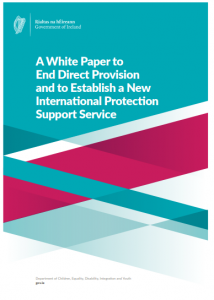Asylum seekers don’t want to work/are here to steal our jobs
Fact: By law, they are barred from working while their cases are examined. Only recognised refugees are allowed to take up employment. Many asylum-seekers become active volunteers in their local communities while waiting for decisions on their applications
Asylum Seekers can travel to their homelands and families if they so wish
False
Asylum Seekers must not leave or attempt to leave the state without the consent of the Minister for Justice while their application is under consideration
Asylum seekers can gain easy access to free education
False
All children and young people, including young asylum seekers, are entitled to free primary and post primary education. However Asylum seekers are not entitled to free third-level (university or college) education or attend vocational training
Asylum Seekers can earn extra money working
False
Asylum Seekers are not entitled to work or carry on any business, trade or profession.
Asylum Seekers never want to return to their homelands in the long run
False
Returning home in safety and dignity is the solution best preferred by refugees. For example, the majority of the Kosovars who were given safety in Ireland in 1999 voluntarily returned home when it was safe.
Crime is high among Asylum Seekers
False
There is no evidence that the rate of crime is higher among asylum-seekers or refugees than in the population as a whole. Asylum-seekers and refugees are also the victims of crime, including sometimes violent assault and harassment.
Anyone who has committed a crime against peace, a war crime, a crime against humanity, or a serious non-political crime is excluded from being recognised as a refugee.
Asylum Seekers do not contribute to Irish Society
False
This is one of the greatest and most unjust misconception surrounding Asylum seekers. Many asylum-seekers become active volunteers in their local communities while waiting for decisions on their applications. They are involved in voluntary groups, classes and share their culture generously to the benefit if Irish Society
 Our Personal Advocacy is centred on peoples need. Filling out forms and finding the right documents can be stressful and confusing at the best of times, let alone in a new country and often in a new language.
Our Personal Advocacy is centred on peoples need. Filling out forms and finding the right documents can be stressful and confusing at the best of times, let alone in a new country and often in a new language.
